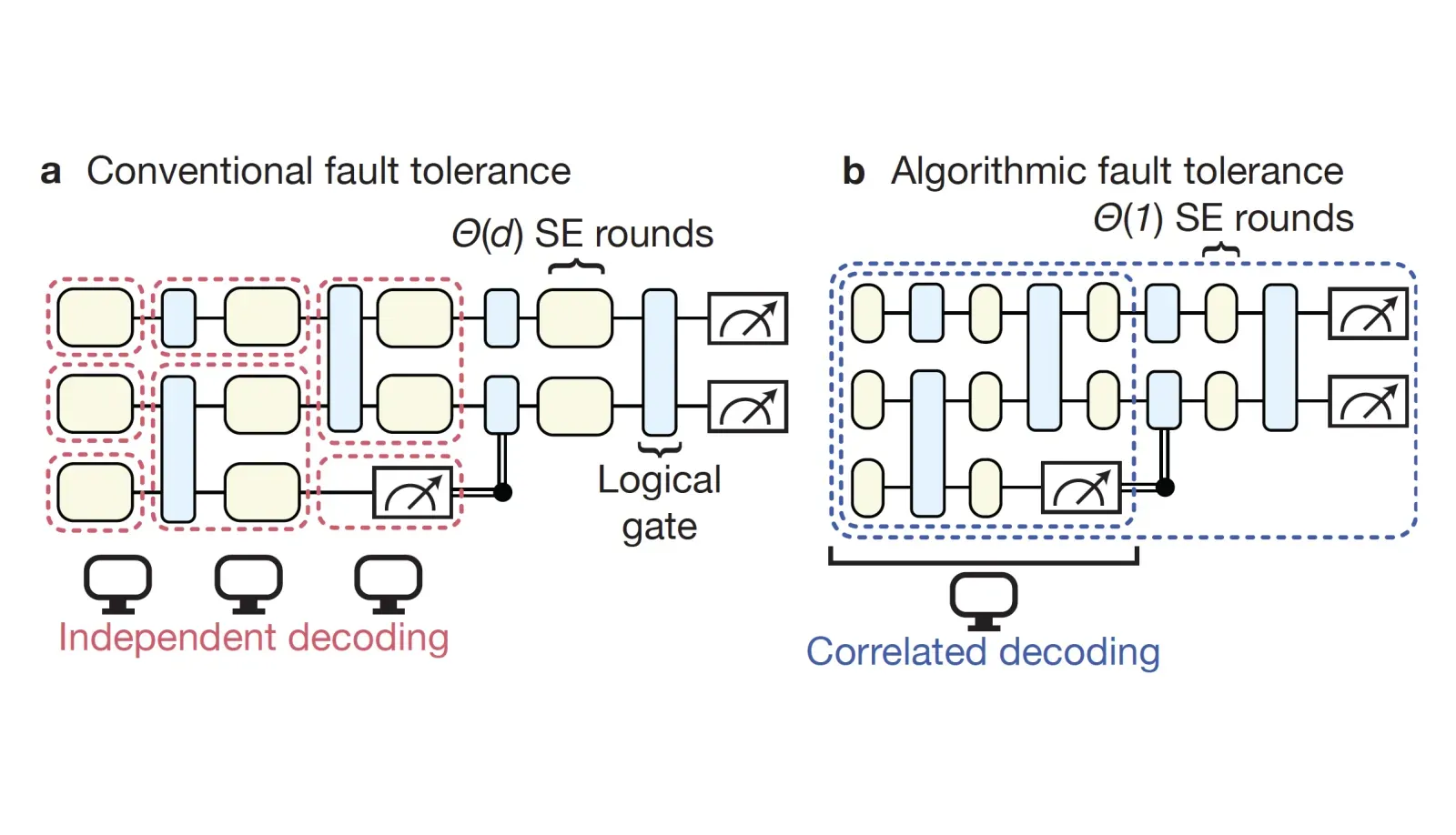
June 25, 2024
Collected at: https://www.quera.com/blog-posts/algorithmic-fault-tolerance-for-fast-quantum-computing
Algorithmic Fault Tolerance for Fast Quantum Computing” is a major result published by QuEra and Harvard collaborators, see https://arxiv.org/abs/2406.17653
It describes a new fault-tolerance method that achieves:
- A factor of “d” (code distance) speedup relative to conventional fault tolerance methods.
- 10-100x speedup when implementing this in reconfigurable quantum computing architectures such as neutral atoms.
Such improvements will dramatically shorten the time to execute highly-complex quantum algorithms.
The article represents a groundbreaking advancement in quantum computing, specifically in the domain of quantum error correction (QEC). This research introduces a novel approach termed “algorithmic fault tolerance,” which significantly enhances the efficiency and reliability of quantum computations. By leveraging transversal operations and correlated decoding, the authors demonstrate that fault-tolerant logical operations can be performed with constant time overhead, contrary to the common belief that multiple syndrome extraction rounds are necessary. This breakthrough has the potential to drastically reduce the space-time cost of practical fault-tolerant quantum computation, making it more feasible for large-scale applications. The findings are particularly relevant for QuEra as they highlight the potential for substantial performance improvements in quantum processors utilizing reconfigurable hardware platforms like neutral atoms.

Leave a Reply